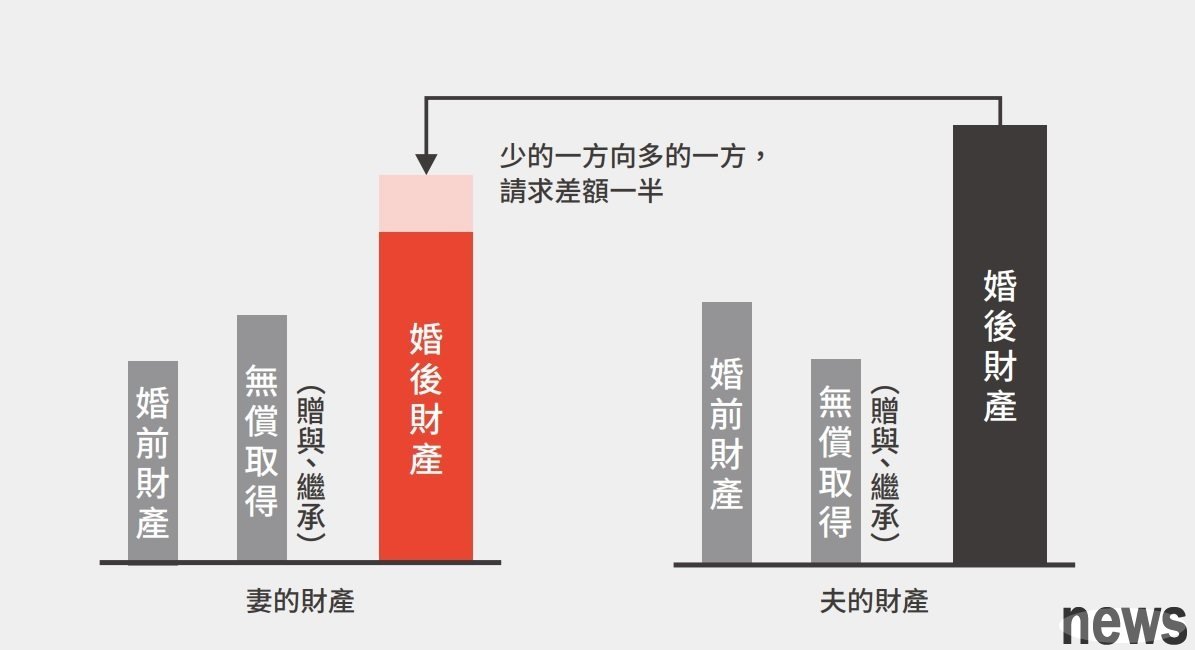"Let's divorce!" When her husband said this coldly, she couldn't believe it. It turned out that this 25-year marriage was easily abandoned; They were in the business period when they got married. He worked as a listed company. She...

"Let's divorce!" When her husband said this coldly, she couldn't believe it. It turned out that this 25-year marriage was easily abandoned;
They were in the business period when they got married. He worked as a listed company. She worked in a domestic enterprise. The couple worked hard. They were promoted to basic-level supervisors at the age of 30. But the mother-in-law hints that her belly is not calm, and the doctor said that it may be because of the high work pressure that she can't conceive.
She lost her iron bowl for this and gave birth to two daughters within three years. She wanted to return to the job after her child was in elementary school. However, her father-in-law was diagnosed with cancer and had a long illness. Later, her husband, who was the eldest, insisted on living with her widowed mother. She missed the opportunity to return to the job while taking care of her father-in-law, serving her mother-in-law, taking care of her family and picking up her children.
After my husband was promoted to senior executive, in order to better develop his EMBA, he heard that there were many young lesbians in the class, and he always listened to him talk about his great achievements with admiration. One night, someone sent a message, saying that the other party said, "The third party is not loved", saying that he was pregnant and still had a male fetus!
She forced her husband with her cell phone, but he was silent. The other party always said that the daughter-in-law was like a daughter's mother-in-law. When she heard that the outer woman had beaten the boy, she actually knelt down and asked her to "make it" and let her continue the incense of her husband's family.
For many years, she has relied on the monthly living expenses her husband paid for her family. She usually bought private clothes, red bags and gifts from her parents' parents during the years, and also bought them by her husband. However, she always thought that the husband and wife were united and would not have to spend too much money if she could save, but she did not save a penny of private money. Now she is home to her father-in-law whom her husband inherited. For many years, her husband's salary and stocks have been in his personal name. She has nothing, so how could she have to leave this home without any hand?
Last year, the divorce between Wang Leehom and his wife, Da S and Wang Xiaofei and other artists was in a sensation. One of the focus of the public was that how to distribute houses and property after divorce? Can the woman get half of the man’s property?
Many people believe that the woman has no job after marriage and the money is all done by the man working outside. What kind of money can the woman allocate to the property? But from the perspective of "homework is given" concept, one spouse who manages the family and cares for the children should consider the contribution to the marriage, and of course he should be assigned to property. So, what do you think about it legally?
The assets are all under the name of the husband, and the wife can still ask for the distribution of remaining property
Wei Jing, a lawyer of the General Commercial Law Firm, said that before discussing the "distribution of residual property between husband and wife", the property system between husband and wife must be explained first:
1. Legal property system: The property of the husband or wife is divided into pre-marital property and post-marital property, owned by the husband and wife; if it cannot be proved as pre-marital or post-marital property, it is presumed to be post-marital property; if it cannot be proved as property owned by husband or wife, it is presumed to be shared by husband and wife.
2. Common property system: The property and income of a husband and wife, except for the exclusive property, is merged into common property and belongs to the common property of the husband and wife.
3. Separate property system: husband and wife each retains the ownership of their property, and each manages, uses, benefits and possesses their own assets.
It is common to see unmarried couples sign "premarital agreement book", but there is no such custom in China, and most people think that the "statutory property system" is suitable. Therefore, when one spouse dies, marriage is consumed or the property system is changed, the husband or wife can ask for the remaining property distribution, and half of it is obtained by the current property difference between the two parties.
For example, the husband earned 200 million yuan after marriage and had a debt of 100 million yuan; the wife earned 10 million yuan after marriage and had no debt. At this time, the husband's remaining property is 10 million yuan, and the wife's remaining property is 10 million yuan, with a difference of 90 million yuan. The husband should allocate 45 million yuan to his wife.
Wei Jing pointed out that it is not that "people with more money" who have to divide half of the difference between "people with less money", but the increase in property after marriage; and if it cannot be clearly proved that it is property before marriage, it will be considered as property after marriage.
For example, if a husband has a deposit of 1 million yuan before marriage, the deposit after marriage is 10 million yuan. Unless the 1 million yuan before marriage exists in a specific account, and that account does not have a loan record, it will be legally considered that the 1 million yuan before marriage has been spent, and the property after marriage is the 10 million yuan existing, not 9 million yuan.
Other properties, such as stocks, real estate, etc., are the same. For example, the husband had a house A before marriage, but after a few years of marriage, he changed his house, sold house A, and bought house B. Unless he could prove that he used the money to sell house A to buy house B, house B was the property after marriage and could no longer claim to deduct the value of house A.
If there is malicious property within 5 years, the calculation can still be recovered after divorce. However, if the property added in the marriage is "unacquisition" such as inheritance, rebate and other "unacquisition", the other party cannot claim distribution. In the above case, the husband inherited the house in his father-in-law's property, and the wife's part of the wife cannot request distribution. However, if the husband inherited the property, and the cash and salary of the post-marriage work have the same account, it may be considered as an increased asset after marriage..

Then if one of the couples tries to settle their property maliciously when their marriage changes, "If there is no post-marriage property, do you need to divide it?" In this regard, there is also a legal prevention mechanism. All the property that is distributed within the first five years must be added to calculate.
Like the wife mentioned above who left the job at the age of 30. Although she had no income after that, she has been caring for her children and serving her mother-in-law for 25 years, and she still has a lot to do with her marriage, so she can ask her husband for the remaining property distribution when she divorces. Assuming that the husband has inherited the assets of 10 million, he earned a total of 50 million yuan after marriage, and spent 30 million yuan after marriage, and the wife's assets are 0, so how much can the wife get at most?
Husband's property: 10 million (inherited property) + 50 million (accounted after marriage) - 30 million (paid expenses after marriage) = 30 million
Wife's property: 0
The difference between husband and wife's property: 30 million (30 million -0)
At this time, if the husband cannot prove that 10 million belongs to inheritance or receive the property, the wife has the opportunity to claim the remaining property difference allocation of 15 million (30 million ÷ 2)
Those who are unfaithful in affair can also ask for the distribution of property. Wei Jing said that many strange answers often occur in family affairs courts, such as "in order to inherit the family, they have to have children with a third party"; some cases are even when the wife works hard to support her, and the husband is delicious and has an affair. So, if one spouse has no contribution or cooperation in the marriage life, or is unfaithful to the marriage, can he not have to divide his property? The answer is not necessarily.
In practice, Wei Mei-Wang once met a husband who chose to separate after his wife had an affair. He thought that his wife did not dare to mention divorce, so he did not make any special remedies to the property. Unexpectedly, after the couple separated for 6 months, the wife of the family actually applied to the court for a "separation property system", requiring that the husband with more assets be assigned to the post-marriage property.
"How can someone who has an affair come to share my property?" The gentleman was indignant about this. But Wei Meiying admitted: "If the law does not stipulate that an affair cannot be divided!"
And the husband suggested that there was a foreigner at home, and his wife didn't have to do anything at home, so she had no contribution to marriage. But the court ruled that, "Although the wife has nothing to do, she is chatting with her mother-in-law, which is also an important thing. We cannot say that she has no contribution to the family." I can only say, is there any contribution or fairness to the marriage? It is still determined by the court that there is no absolute right.
The relationship is sweet when you get married, and most people will not plan for personal assets. Even if your parents have doubts, it is difficult to ask your children to make a deal before getting married. In this regard, Wei Wei only has one suggestion: "The money before marriage is placed in Account A, and the money after marriage is placed in Account B; the money for Account A should not be moved, and spend it if you want to spend it, and don't integrate it together." If you really miss the breakup in the future, it will at least protect the pre-marital property and reduce the division dispute.
●Original publication URL
●